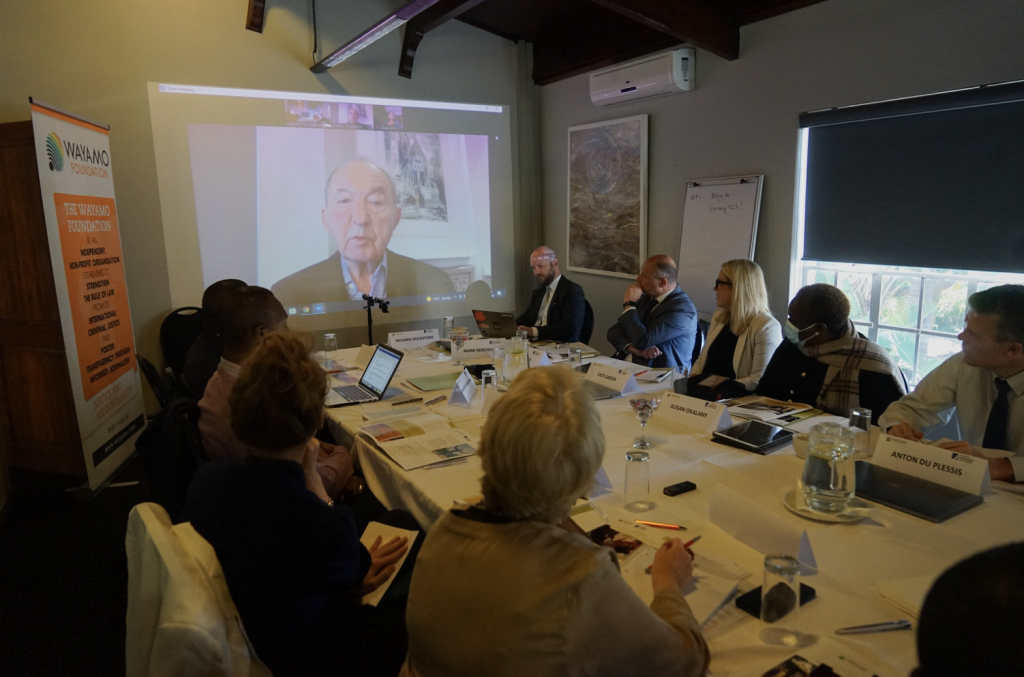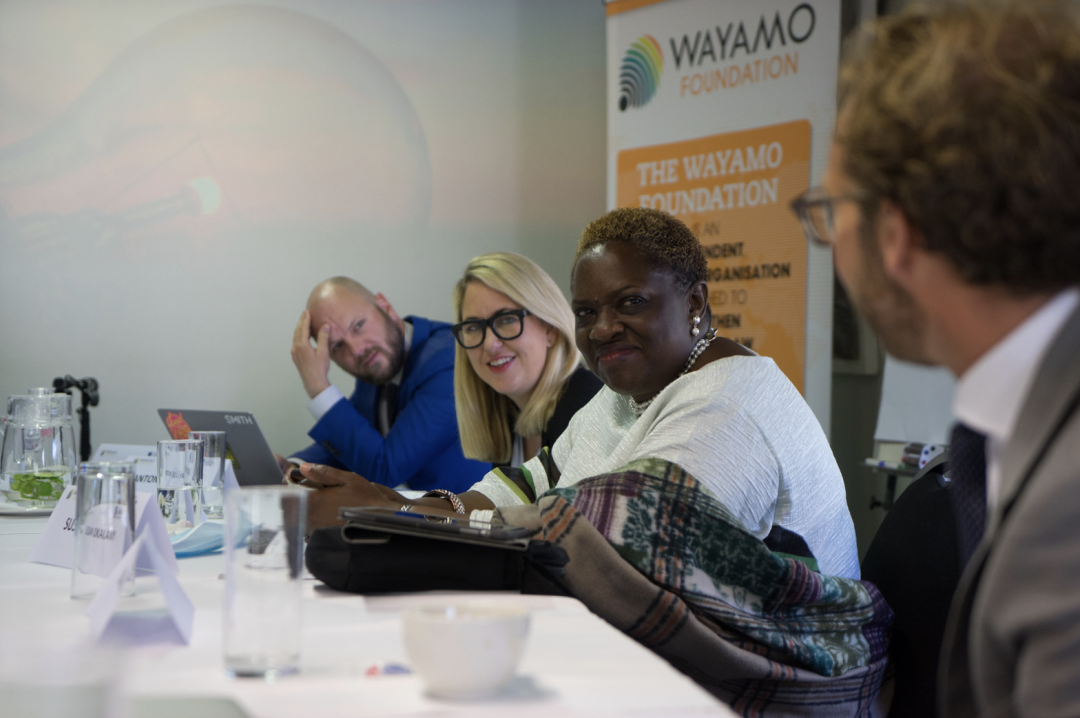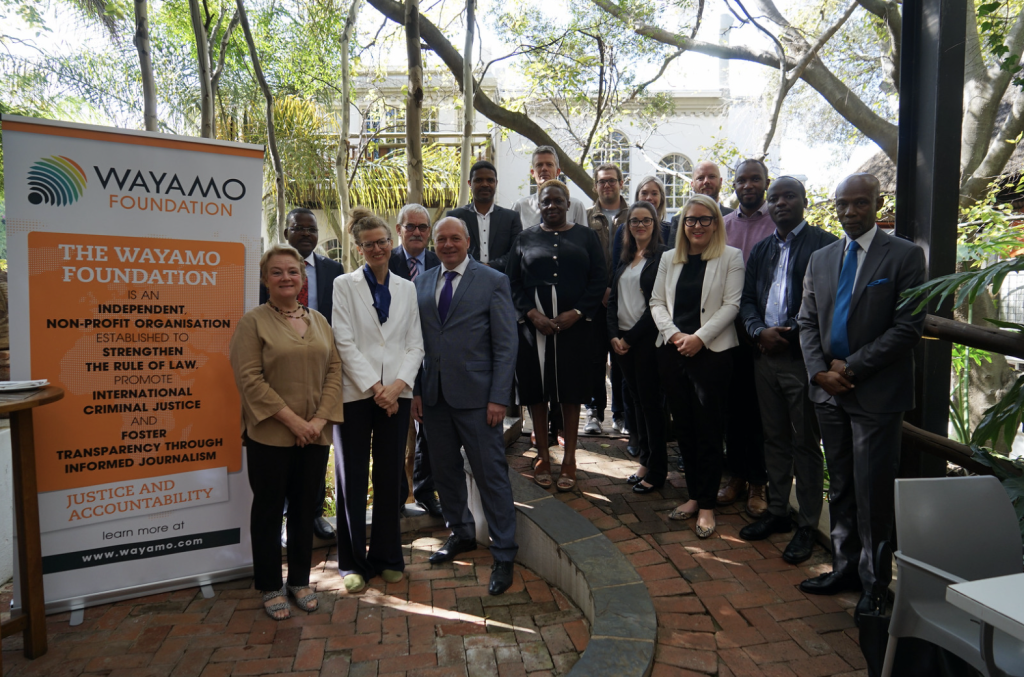Countering terrorism and international crimes: human rights implications and linkages
On 26 and 27 May 2022, the Wayamo Foundation and Konrad Adenauer Foundation (KAS) Rule of Law Program for Anglophone Sub-Saharan Africa held a highly productive, in-person workshop on ‘Countering terrorism and international crimes: human rights implications and linkages.’ The workshop took place in Pretoria, South Africa, and brought together legal practitioners, diplomats, and academic experts from Kenya, Nigeria, Uganda, South Africa, Europe and North America.
Click here for all the workshop pictures.
The workshop was officially opened by Bettina Ambach, Wayamo Director, Stefanie Rothenberger, Director of the KAS Rule of Law Program for Anglophone Sub Saharan Africa in Nairobi, and Holger Dix, Head of the KAS Regional Programme Political Dialogue Sub-Saharan Africa in South Africa.
Following the opening, the meeting was addressed via Zoom by Richard Goldstone, Former Chief Prosecutor of the United Nations International Criminal Tribunals for Rwanda and the former Yugoslavia, former Justice of the Constitutional Court of South Africa, and member of the Africa Group for Justice and Accountability (AGJA). The second day of the workshop began in similar fashion with opening remarks from Rüdiger Lotz, Deputy Head of Mission of the German Embassy in Pretoria.

Together, participants examined subjects ranging from the current legal frameworks available to prosecute terrorism and international crimes, the importance of upholding the rule of law and fair trial standards in terrorism and international crime trials, enhancing criminal justice -as opposed to kinetic or military response to terrorism- the relevant linkages between international crimes and terrorist acts, and the collection, use and admissibility of battlefield evidence.
Workshop participants shared their expertise and experience in these and other relevant areas. Together, those present also worked to identify concrete and realisable recommendations on how to improve the investigation, prosecution and adjudication of international crime and terrorism cases in line with a commitment to uphold and promote human rights and dignity.
The findings of the workshop, along with the recommendations of participants, will be made available in a forthcoming policy paper.




